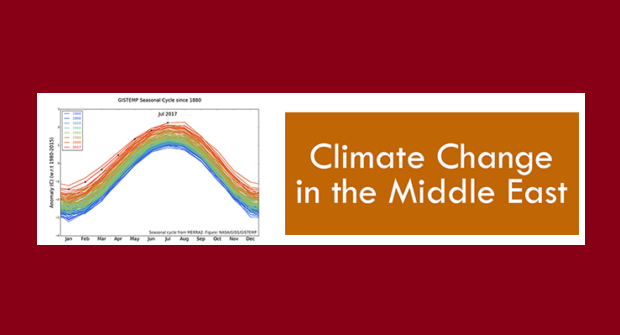COVID, LEED and The Workplace
Written By: Michael Tsang, Ph.D. | Date: 2019

According to NASA, 2019 was the second warmest single year globally since modern record-keeping began in 1880. The hottest year on record is 2016 which had the warmest July of the last 137 years of record-keeping, being an average 0.83 degrees Celsius warmer than the years between 1951-1980.
In places that are already hot such as the Middle East, it is an unfortunate reality that climate models are predicting even hotter temperatures (and to the point where human adaptability is being challenged). In fact, in 2017, Kuwait recorded the highest reliable recorded temperature on the Earth's surface, reaching 54.0°C (129.2°F). This record temperature is still being investigated as to whether it truly supplanted the current record temperature of 56.7°C (134.06°F) recorded in Death Valley, California in 1913. Other Gulf Cooperation Council (GCC) countries other than Kuwait are similarly seeing their own internal records being broken year upon year.
The challenge of the GCC will be how to appropriately plan and respond to the changes that are currently ongoing and the causes underlying those changes. To be clear, the GCC in total (Saudi Arabia, Bahrain, United Arab Emirates, Qatar, Kuwait and Oman) makes up only around 11% of current greenhouse-gas (GHG) emissions globally, however that shouldn't persuade government leaders and key industrial players to take a back seat to this issue. (It should be noted that the GCC have some of the highest per capita GHG emissions). For one, considering that the burning of fossil fuels is both a primary driver of the GCC economy as well as GHG emissions, the GCC is indirectly influencing its own climate change impacts. Secondly, what climate measurements and models also show us is that it is not just the daytime highs that are increasing but also the daily lows that are rising (even at a faster rate than the daytime highs). What this means is that there will be less "cooling off" at night than in previous times. In direct terms, this all means an increase pressure that will be put on the local infrastructures of these countries both in terms of increased demand on the power grid due to more cooling of indoor air spaces both during peak-day times and traditionally off-peak times during the night. (Needless to say, building more fossil fuels plants isn't going to help the problem at all!) Indirectly this will likely push electricity prices even higher as governments and utilities try to change peak-power draw and as those same peak-hours shift through the day and become longer. This could put a serious strain on local economies, as higher electricity rates mean reduced competitiveness globally.
Thus, the GCC (collectively as its citizens, organizations, industries and governments) should be lobbying loudly for increased adherence by all international partners to greenhouse-gas-emission mitigation strategies that will curb the most severe impacts of climate change. Governments can reach out to their trading partners and industries can work together with their upstream suppliers and downstream consumers to ensure accountability and policies that support mitigation strategies. While the former is being entrusted in the 2015 Paris Agreement, the latter represents a set of business practices that would need to be driven in a top-down fashion. Such a system has been reflected in the newly updated ISO 14001:2015 Environmental Management System (EMS) Standard, which advocates for a much stronger management role and also life-cycle perspective of an entity's operations, services and products.
While solutions exist, it will take the political will and courage of local stakeholders to take the necessary steps.
Looking for Expert Analysis?
Send us an email or schedule a call with us to discuss your questions and needs regarding carbon, energy, and sustainability.
Contact
Want to contact us about our services and products? Give us a call or send us a message by using the form below.
Location:
Three Pillars Consulting (TPC)
Al Noor Plaza (Building 2118), Unit 107
Al Bashair Street | Madinat Sultan Qaboos, Muscat | Oman
Postal Code 116
Email:
contact@threepillarsgroup.com
Call:
+968 2496 7611
